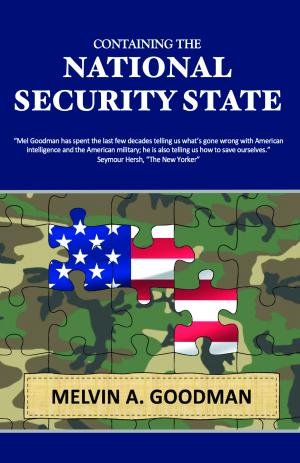Bio

Melvin A. Goodman is a senior fellow at the Center for International Policy in Washington, DC, and an adjunct professor of international relations at Johns Hopkins University. His 42-year government career included tours at the Central Intelligence Agency, the Department of State, and the Department of Defense’s National War College, where he was a professor of international security. His books on international security include “A Whistleblower at the CIA: The Path of Dissent;” “National Insecurity: The Cost of American Militarism;” “Bush League Diplomacy: How the Neoconservatives are Putting the World at Risk;” “The Wars of Eduard Shevardnadze;” “The Phantom Defense: America’s Pursuit of the Star Wars Illusion;” “The End of Superpower Conflict in the Third World,” and “Gorbachev’s Retreat: The Third World.”
He has written numerous articles and opeds that have appeared in the New York Times, the Washington Post, the Baltimore Sun, Foreign Policy; Harper’s Magazine; the Bulletin of the Atomic Scientists; and the Foreign Service Journal. His TV appearances include the PBS Newshour; the Amy Goodman Show; NBC; and CBS. He has lectured at college campuses all over the country as well as to numerous chapters of the World Affairs Council, the Council on Foreign Relations, and various veteran organizations. In 1991, he testified before the Senate intelligence committee in order to block the confirmation of Robert M. Gates as director of the CIA.
Recent News and Latest Book
The Attitude with Arnie Arnesen – 7 pm Tonight
I was Interviewed by Arnie Arnesen on April 1st for air on April 2nd, 2020 – streaming live at wnhnfm.org at noon and 7pm EST (M-F). Discussing “The Coronavirus and the Urgent Need to Redefine National Security” article I wrote on counterpunch.com.
The Coronavirus and the Urgent Need to Redefine National Security
For far too long, the United States has been wastefully spending its precious budgetary resources on a nineteenth-century military strategy and a strategic arms policy that has brought no advantages to the American people. For the past three decades, our national security policies have been ineffectual and irrelevant to the genuine threats we face today. These threats do not emanate from Russia or China. Rather, they stem from an underfunded and highly vulnerable public health system, a cyber world that is out of control, and a crumbling infrastructure.


